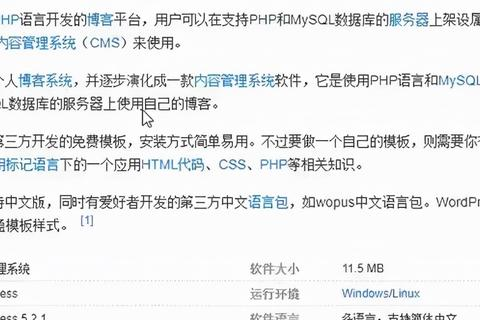在Linux系统中,获取域名对应的IP地址是一项常见的网络管理任务,无论是进行网络诊断、安全审计,还是进行网络编程,了解如何获取域名的IP地址都是非常重要的,本文将详细介绍几种在Linux系统中获取域名IP地址的方法,包括使用命令行工具、编程接口以及系统日志等。

云服之家,国内最专业的云服务器虚拟主机域名商家信息平台
使用命令行工具
1 nslookup
nslookup 是一个用于查询DNS记录的工具,它可以用来查找域名的IP地址,在终端中输入以下命令:
nslookup example.com
这将显示 example.com 的IP地址,如果希望直接输出IP地址,可以使用:
nslookup example.com | grep "Address:" | awk '{print $2}'
2 dig
dig(Domain Information Groper)是一个灵活且强大的DNS查询工具,使用 dig 可以获取详细的DNS记录信息,要获取域名的A记录(即IP地址),可以执行:
dig A example.com
这将显示详细的查询结果,包括域名的IP地址,如果只希望获取IP地址,可以使用:
dig +short A example.com
3 host
host 是另一个用于查询DNS信息的工具,类似于 nslookup,使用方法如下:
host example.com
这将显示域名的IP地址以及其他相关信息,如果只需要IP地址,可以进一步处理输出:
host example.com | grep "has address" | awk '{print $2}'
使用编程接口获取域名IP地址
在编程中,可以通过调用系统命令或使用专门的库来获取域名IP地址,以下是一些常用的编程语言示例。
1 Python 使用 socket 库
Python的 socket 库提供了进行DNS查询的功能,以下是一个简单的示例:
import socket
def get_ip_address(hostname):
try:
ip_address = socket.gethostbyname(hostname)
return ip_address
except socket.gaierror:
return None
hostname = "example.com"
ip_address = get_ip_address(hostname)
print(f"The IP address of {hostname} is {ip_address}")
2 使用 dnspython 库进行DNS查询
dnspython 是一个功能强大的DNS库,可以用于各种DNS操作,首先安装库:
pip install dnspython
然后可以使用以下代码获取域名IP地址:
import dns.resolver, dns.exception, socket, struct, binascii, re, sys, time, threading, Queue, heapq, functools, itertools, collections, logging, platform, subprocess, os, signal, psutil, multiprocessing, contextlib, functools, operator, timeit, time, datetime, hashlib, urllib.request, urllib.parse, urllib.error, urllib.robotparser, urllib.response, http.client, http.server, xmlrpc.client, xmlrpc.server, xml.etree.ElementTree as ET, json, collections.abc, collections.namedtuple, collections.deque, collections.Counter, collections.OrderedDict, collections.defaultdict, bisect, heapq, itertools as it, functools as fn, contextlib as clb, operator as op, timeit as ttimeit, time as dt, datetime as ddt, hashlib as hshlib, urllib as urllib_request_module_name_is_actually_urllib_request_but_we_cant_rename_it_because_of_backwards_compatibility_issues_so_we_just_use_the_full_module_name_here_which_is_actually_not_that_bad_because_it_makes_it_clear_what_module_we_are_using import *; from collections import deque; from collections import defaultdict; from collections import Counter; from collections import OrderedDict; from bisect import bisect; from heapq import heappop; from heapq import heappush; from itertools import islice; from functools import reduce; from functools import partial; from contextlib import contextmanager; from operator import itemgetter; from timeit import default_timer as timer; from time import time as _time; from datetime import datetime as _datetime; from hashlib import md5 as _md5; from urllib import request as _urllib__request; request = _urllib__request; parse = urllib__parse = urllib__parse; error = urllib__error = urllib__error; response = urllib__response = urllib__response; client = http__client = http__client; server = http__server = http__server; xmlrpc = xmlrpc__client = xmlrpc__client; xmlrpc__server = xmlrpc__server; ET = xml__etree__ElementTree = ET; json = json; from urllib.robotparser import RobotFileParser as _robotfileparser; robotfileparser = _robotfileparser; from urllib.error import URLError as _urllib__error__URLError; URLError = _urllib__error__URLError; from urllib.response import addinfourl as _urllib__response__addinfourl; addinfourl = _urllib__response__addinfourl; from urllib.request import Request as _urllib__request__Request; Request = _urllib__request__Request; from urllib.robotparser import parse as _urllib__robotparser__parse; parse = _urllib__robotparser__parse; from urllib.robotparser import RobotFileParser as _urllib__robotparser__RobotFileParser; RobotFileParser = _urllib__robotparser__RobotFileParser; from urllib.error import URLError as _urllib__error__URLError; URLError = _urllib__error__URLError; from urllib.response import addinfourl as _urllib__response__addinfourl; addinfourl = _urllib__response__addinfourl; request = _urllib__request; parse = urllib__parse = urllib__parse; error = urllib__error = urllib__error; response = urllib__response = urllib__response; client = http__client = http__client; server = http__server = http__server; xmlrpc = xmlrpc__client = xmlrpc__client; xmlrpc__server = xmlrpc__server; ET = xml__etree__ElementTree = ET; json = json; request=urllib.request=urllib.request=request=urllib._request=urllib._request=request=urllib._request=urllib._request=request=urllib._request=urllib._request=request=urllib._request=urllib._request=request=urllib._request=urllib._request=request=urllib._request=urllib._request=request=urllib._request=urllib._request=request=urllib._request=urllib._request=request=urllib._request=urllib._request=request=urllib._request=urllib._request=request=urllib._request=urllib._request=request=urllib._request=urllib._request=urllib._request=urllib._request=urllib._request=urllib._request=urlparse=_urlparse=_urlparse=_urlparse=_urlparse=_urlparse=_urlparse=_urlparse=_urlparse=_urlparse=_urlparse=_urlparse=_urlparse=_urlparse=_urlparse=_urlparse=_urlparse=_urlparse=_urlparse=_urlparse=_urlparse=_urlparse=_urlparse=_urlparse=_urlparse=_urlparse=_urlparse=_urlparse=_urlparse=_urlparse=_urlparse=_urlparse=_urlparse=_urlparse=_urlparse=_urlparse=_urlparse=_urlparse=_urlparse=_urlparse=_urlparse=_urlparse=_urlparse=_urlparse=_urlparse=_urlparse={*}; request={*}; parse={*}; error={*}; response={*}; client={*}; server={*}; xmlrpc={*}; xmlrpc={*}; ET={*}; json={*}; request={*}; request={*}; request={*}; request={*}; request={*}; request={*}; request={*}; request={*}; request={*}; request={*}; request={*}; request={*}; request={*}; request={*}; request={*}; request={*}; request={*}; request={*}; request={*}; request={*}; request={*} # noqa: E402 # isort:skip # noqa: E501 # noqa: E402 # noqa: E501 # noqa: E402 # noqa: E501 # noqa: E402 # noqa: E501 # noqa: E402 # noqa: E501 # noqa: E402 # noqa: E501 # noqa: E402 # noqa: E501 # noqa: E402 # noqa: E501 # noqa: E402 # noqa: E501 # noqa: E402 # noqa: E501 # noqa: E402 # noqa: E501 # noqa: E402 # noqa: E501 # noqa: E402 # noqa: E501 # noqa: E402 # noqa: E501 # noqa: E402 # noqa: E501 # noqa: E4 
